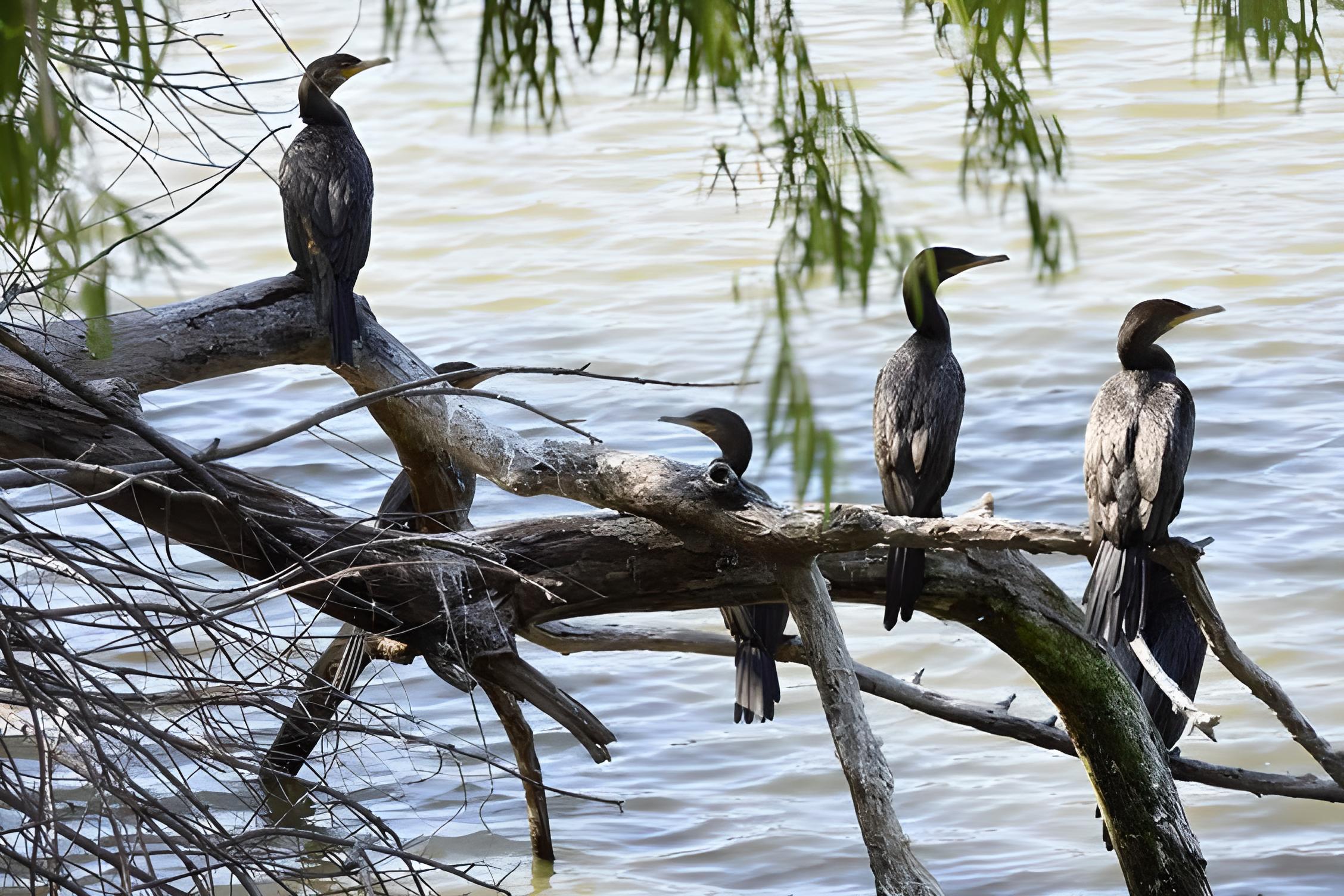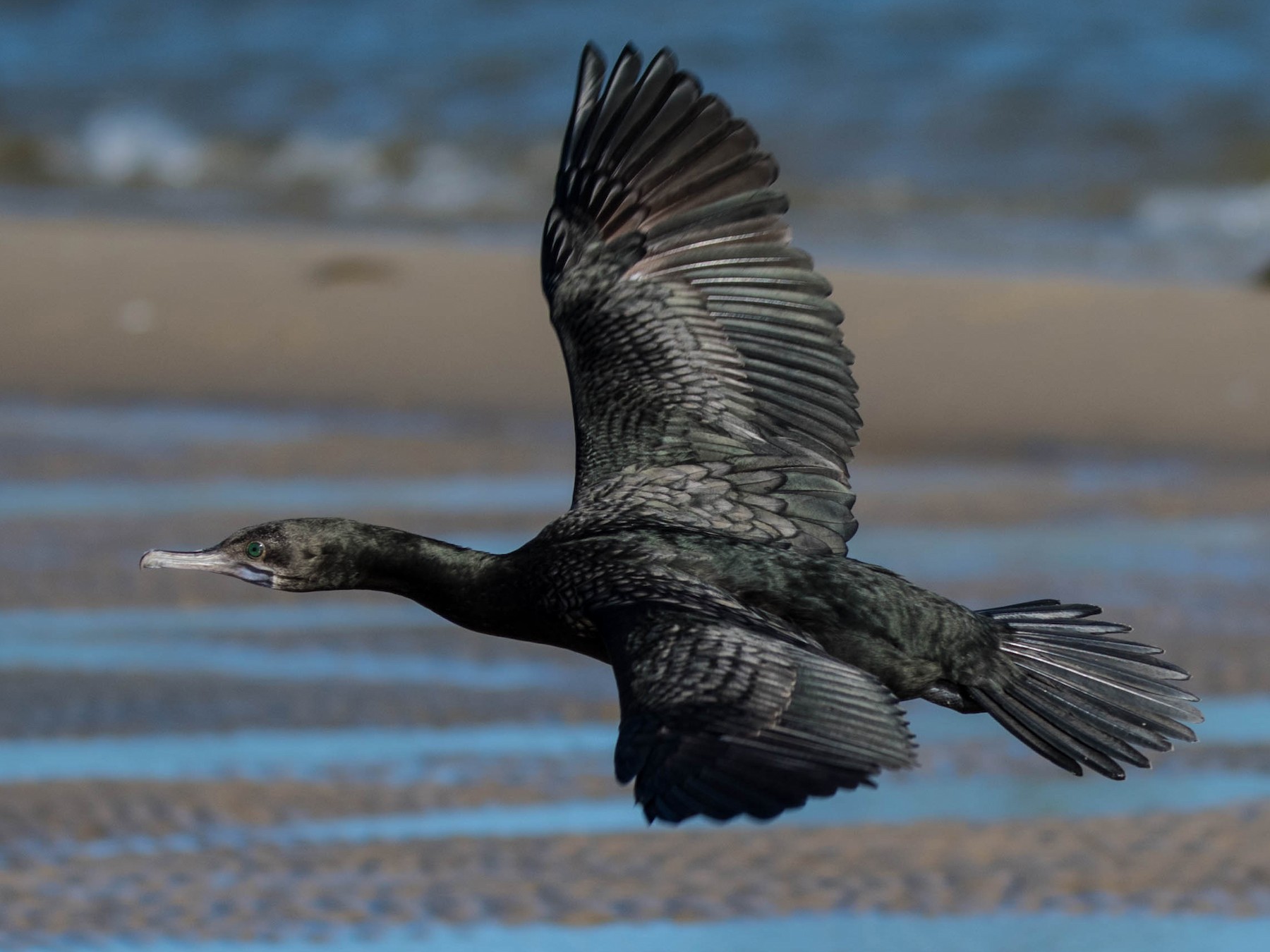The Little Black Cormorant (Phalacrocorax sulcirostris) is a small species of cormorant, easily identified by its all-black plumage with a greenish sheen on the back. During breeding season, white feathers appear irregularly on the head and neck, and a whitish eyebrow becomes visible. This bird is often found in large flocks, and sometimes these flocks will fly in V-formations.
Habitat

This small to medium-sized bird that is native to Australia, New Zealand, and parts of Southeast Asia. Little Black Cormorants inhabit various water sources such as rivers, lakes, estuaries, and coastal areas. These birds frequently perch on rocks or logs at the water’s edge and plunge into the water to capture fish, crustaceans, and other small aquatic creatures. Little Black Cormorants possess exceptional diving skills and can remain submerged for as long as a minute.
Characteristics
Little Black Cormorants are small birds, measuring around 50-60cm in length and weighing between 700-900g. They have black feathers with a greenish sheen, and their bills are long & hooked, making them well-suited to catching fish. These birds have webbed feet, which help them to swim and dive underwater. They have life span approximately 25 years.
Diet and Behavior

The Little Black Cormorant’s diet primarily consists of small fish and crustaceans. They are skilled divers and can stay underwater for up to a minute while hunting for prey. These birds use their sharp bills to catch fish and other small creatures, which they then swallow whole. Little Black Cormorants are known to hunt in groups, which can be quite large during breeding season.
They are generally solitary or found in small groups, although they may form larger flocks during the breeding season. This bird breed in colonies, typically building their nests in trees or on the ground. They lay between 3-6 eggs, with 23 to 35 days of incubation period.
We should protect Little Black Cormorants and all wildlife so they don’t go extinct in the wild. So, let’s learn about birds and get involved in animal welfare with Bali Safari Park!






